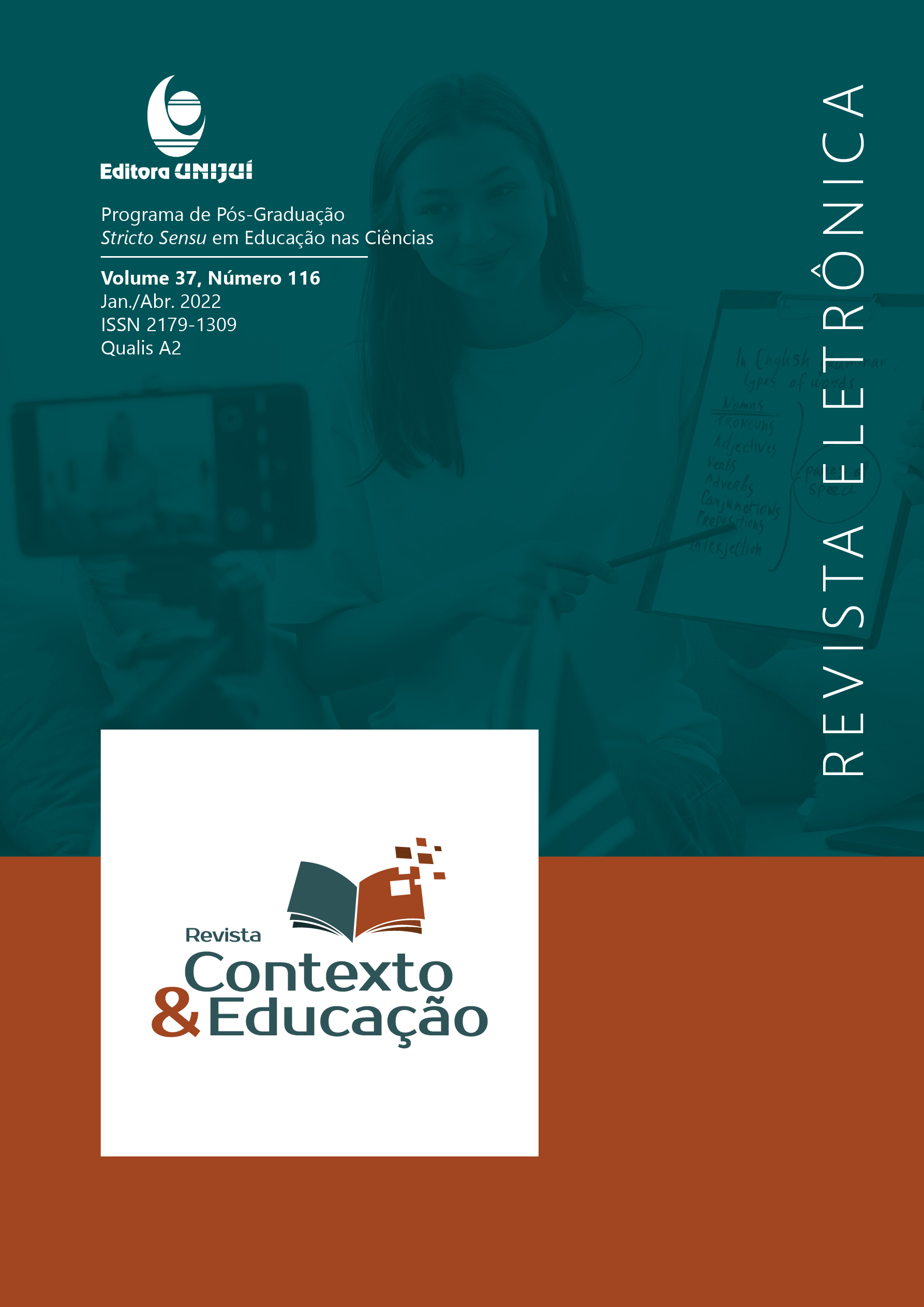SABERES DOCENTES NA FORMAÇÃO INICIAL DE PROFESSORES DE QUÍMICA: NOVAS COMPREENSÕES À LUZ DA ANÁLISE TEXTUAL DISCURSIVA
KNOWLEDGE TEACHERS IN THE INITIAL TRAINING OF CHEMISTRY TEACHERS: NEW UNDERSTANDINGS IN THE LIGHT OF DISCURSIVE TEXTUAL ANALYSIS
DOI:
https://doi.org/10.21527/2179-1309.2022.116.11489Palavras-chave:
Saberes docentes, referencial metodológico, estágio supervisionado, Análise Textual DiscursivaResumo
No presente artigo apresentamos os desdobramentos de um estudo sobre os Saberes Docentes (SD) mobilizados por futuros professores de Química, enfatizando as etapas, os resultados e as novas compreensões possibilitadas a partir de um movimento analítico fundamentado nos pressupostos da Análise Textual Discursiva (ATD). Nessa perspectiva, os relatos dos licenciandos coletados durante o processo de pesquisa foram analisados a partir de categorias construídas com base na tipologia dos SD proposta por Tardif. Desse processo de análise, dada a amplitude das categorias, emergiram subcategorias que nos possibilitaram evidenciar, de maneira mais pontual, quais aspectos os licenciandos mobilizaram ao pensar no planejamento e na ação docente em sala de aula, bem como as lacunas presentes nesse processo, relacionadas ao domínio dos conceitos científicos, à mediação pedagógica dos conhecimentos, à elaboração e execução dos planejamentos na realidade concreta das escolas e ao tempo de prática implicado para a reelaboração desses saberes. Tais considerações conclusivas apontam caminhos norteadores para os professores formadores na construção de espaços formativos que realmente deem conta da complexidade da prática docente, visando contribuir com o movimento de profissionalização defendido pelas pesquisas da área com enfoque na formação de professores.
Downloads
Publicado
Como Citar
Edição
Seção
Licença
Ao publicar na Revista Contexto & Educação, os autores concordam com os seguintes termos:
Os trabalhos seguem a licença Creative Commons Atribuição 4.0 Internacional (CC BY 4.0), que permite:
Compartilhar — copiar e redistribuir o material em qualquer meio ou formato;
Adaptar — remixar, transformar e criar a partir do material para qualquer fim, inclusive comercial.
Essas permissões são irrevogáveis, desde que respeitados os seguintes termos:
Atribuição — os autores devem ser devidamente creditados, com link para a licença e indicação de eventuais alterações realizadas.
Sem restrições adicionais — não podem ser aplicadas condições legais ou tecnológicas que restrinjam o uso permitido pela licença.
Avisos:
A licença não se aplica a elementos em domínio público ou cobertos por exceções legais.
A licença não garante todos os direitos necessários para usos específicos (ex.: direitos de imagem, privacidade ou morais).
A revista não se responsabiliza pelas opiniões expressas nos artigos, que são de exclusiva responsabilidade dos autores. O Editor, com o apoio do Comitê Editorial, reserva-se o direito de sugerir ou solicitar modificações quando necessário.
Somente serão aceitos artigos científicos originais, com resultados de pesquisas de interesse que não tenham sido publicados nem submetidos simultaneamente a outro periódico com o mesmo objetivo.
A menção a marcas comerciais ou produtos específicos destina-se apenas à identificação, sem qualquer vínculo promocional por parte dos autores ou da revista.
Contrato de Licença (para artigos publicados a partir de outubro/2025): Os autores mantém os direitos autorais sobre seu artigo, e concedem a Revista Contexto & Educação o direito de primeira publicação.


